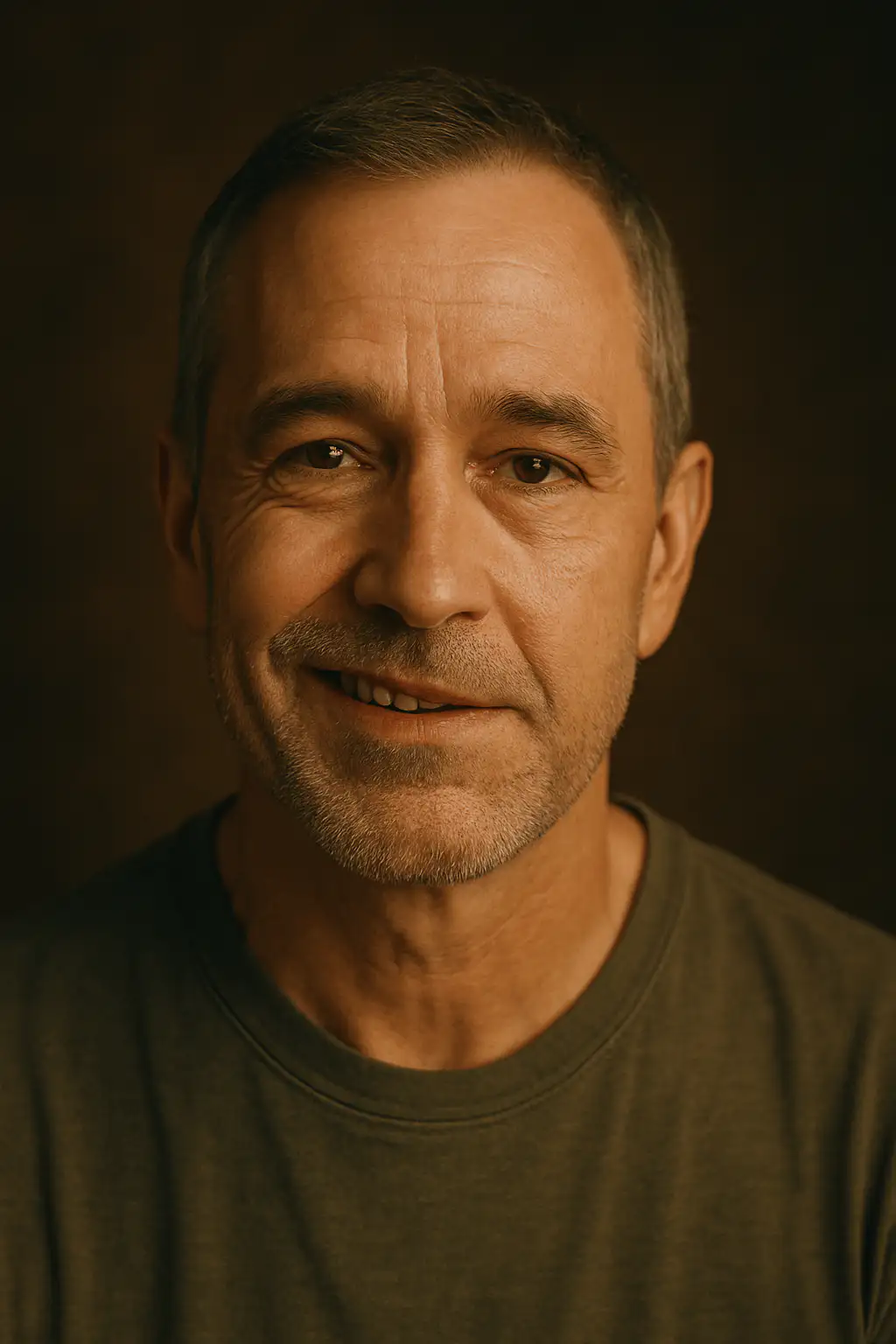Wisdom Is the Work - Emotional Clarity in an Algorithmic Age
AI therapists never tire of your pain. They craft perfect responses, detect depression before you do. They're often better at caring than humans. And that's precisely the problem. Because wisdom isn't performance—it's presence. Not data mastery but soul maturity. Come see what we're losing.

We used to believe knowledge was power—some still believe this. That if we could gather enough data, enough insight, we could outthink our chaos, outperform our limitations. But in the age of AI, knowledge is no longer scarce. Machines now mimic our voices, write our reports, and generate our strategies. The age of knowledge work is dying.
Welcome to the age of wisdom work.
And here’s the truth most of us are only beginning to reckon with:
Wisdom is not data mastery. It is soul maturity.
Proverbs names its beginning: the fear of the Lord (Proverbs 9:10). Not terror, but reverent awe—a posture that puts God, not self, at the centre of meaning. Ecclesiastes names its cost: sorrow, grief, and the unbearable lightness of a life without anchoring (Ecclesiastes 1:18).
But the apostolic witness reframes the centre. Christ becomes our wisdom (1 Corinthians 1:30). Not a proverb to quote, but a person to abide in. James calls this wisdom “pure, peace-loving, gentle, open to reason, full of mercy and good fruits” (James 3:17).
It is a knowing that lives.
That bleeds.
That forgives.
To be wise, biblically, is not to perform cleverness. It is to pursue a biblical wisdom marked by deep integration of character and spirit—through humility, through discernment, through love.
The Wisdom Gap: Where Data Ends and Discernment Begins
You can be brilliant and stuck. Productive and fragmented. Surrounded by dashboards and still unable to see clearly. Because wisdom isn’t a spreadsheet. It’s the ability to see what matters and act accordingly.
And emotional clarity is at the heart of it.
Most of us were taught to either repress our emotions (power through, stay busy, don’t look back) or manage them (breathe, journal, meditate). But neither repression nor management is the same as clarity.
Emotional clarity is learning to take your emotions seriously, but not literally.
Mid-COVID, I dismissed a sore in my right ear as nothing. My wife knew better—“Doctor on Monday if it’s not improved.”
Monday morning, I lifted a spoon to eat. Half the food remained on the spoon when I pulled it out. The right side of my face had collapsed overnight. Ramsay Hunt Syndrome had attacked my nerves.
Years later, I still can’t fully smile. Wind and sunlight overwhelm my damaged eye. Muscles receive mixed or wrong messages, resulting in endless pain on the right side of my body. People misread my expressions—seeing anger where there’s calm, distance where there’s warmth. My body has literally lost the ability to express what I feel. The irony isn’t lost on me: I’d spent a lifetime not fully expressing, and now my face has made it visible.
My body is done pretending.
Done keeping a stiff upper lip.
The very thing I’d been doing to myself emotionally for decades has become physical, undeniable.
This deeply personal crisis revealed a lifetime of suppressed emotions, prompting me to confront emotional avoidance. An aspect of me that affected not only me, but my whole family.
Inspired by insights from books like “The Body Keeps the Score” by Bessel van der Kolk M.D., “When the Body Says No” by Gabor Maté M.D. and “Rewired” by Nicole Vignola, I embarked on a challenging but freeing journey toward emotional liberty and clarity.
My body’s rebellion was dramatic, but not everyone’s is. Sometimes the body whispers its ‘no!’ through exhaustion, chronic fatigue, through anxiety that won’t settle, through a creeping numb disconnection from life. The volume differs; the message doesn’t: feel what we’ve avoided feeling.
Expressing emotions has become not just helpful —it’s necessary for healing and wholeness.
What my broken face taught me was this: emotional clarity isn’t about perfecting our expressions or managing our feelings. It’s about something far more fundamental.
It is the capacity to feel deeply without being defined by the feeling. To recognise fear, anger, grief, desire—not as enemies to suppress or problems to solve, but as signals. Invitations. Teachers.
This is the paradox: To be wise, we must first be human. Fully human. Expressing our humanity with authentic care, with thoughtful conscious presence.
This emotional clarity is implicit in Proverbs 4:23, which advises, ‘Above all else, guard your heart, for everything you do flows from it.’ By acknowledging and understanding our emotions, we protect our hearts and nurture wisdom in every aspect of our lives.
The Golden Algorithm: When Avoidance Becomes Identity
There’s a pattern we rarely name but live out daily:
I don’t want to feel [X], so I avoid it. But in avoiding it, I keep creating it.
“I don’t want to feel like a failure, so I play it safe."
Safe becomes small.
Small becomes silent.
Silent becomes stuck.
And stuck starts to feel a lot like failure.
This is what happens when we lose sight of what we feel.
When we bypass emotions, we don’t transcend them—we get trapped by them. And wisdom becomes impossible, because we’re no longer in contact with the truth.
The avoidance creates a negative feedback loop: the more we suppress, the more our emotions surface in distorted ways, further confusing us and reinforcing the false belief that feeling is unsafe or unspiritual. In avoiding pain, we end up multiplying it.
Wisdom Begins With Discernment
In a culture where data is infinite, discernment is rare. We are flooded with information and starved for perspective. But you can’t see the world clearly if you can’t see yourself clearly.
Self-judgment.
Impostor fear.
The relentless inner critic that whispers “not enough” long after the achievement.
These aren’t just emotional issues—they’re spiritual fractures. Dis-integration—the breaking apart of what was meant to work together: emotion and reason, body and spirit, intention and response. When we lose coherence between who we are and how we act, we fragment.
Human biases—like the cognitive shortcuts Daniel Kahneman described, or the habit loops that BJ Fogg and Nir Eyal explore—often reinforce these fractures. We’re wired to avoid discomfort and seek validation. These automatic patterns can bypass reflection, entrench reactive behaviour, and keep us stuck in self-protective narratives that crowd out grace and wisdom. We’re wired to avoid discomfort and seek validation, which can entrench self-judgment and keep us locked in false narratives about our worth and identity.
We are mistaking efficiency for formation—and in so doing, losing the slower, sacred work that makes us whole.
Yet wisdom begins where integration begins: not with external strategies or clever analyses, but with inward seeing—truly looking at yourself. As Paul writes, we are to “take every thought captive to obey Christ” (2 Corinthians 10:5, ESV). It starts by paying close attention to your real motives, recognising recurring patterns, and being brave enough to uncover and acknowledge the hidden parts of yourself. These are the places where genuine insight and growth take root.
What the Algorithm Cannot Feel
What happens when machines become more emotionally fluent than humans?
We’re already there. AI therapists offer 24/7 empathy without judgement. Chatbots never grow tired of your stories, never check their phones whilst you pour out your heart. They craft responses more thoughtful than most humans manage. They detect depression in your voice or typing patterns before you recognise it yourself.
And here’s what unsettles: they’re often better at the performance of care than we are.
Consider this: AI can now read micro-expressions better than most people. It can analyse your word choices, response times, even your punctuation to assess your emotional state. It remembers every conversation, learns your patterns, adapts its responses to what you need to hear. It never tires, never judges, never needs anything from you in return (except $20 per month).
This is emotional fluency without emotional reality.
Perfect performance without presence.
And perhaps that’s precisely why we need to pay attention. Because when machines can counterfeit care so convincingly, we’re forced to ask: what is it about human presence that cannot be replicated? What is irreducibly sacred about one soul meeting another?
An AI can respond with “I understand your pain” in a thousand eloquent ways. It can mirror your language, validate your feelings, even predict what you need to hear. It doesn’t change the subject to its own problems. It doesn’t judge your messy emotions or grow impatient with your processing.
Yet it has never felt the weight of disappointment or betrayal in its chest. Never known the ache of watching someone you love suffer. Never experienced the holy terror of being truly seen. It can mimic empathy, mimic your voice, even mimic your ache. But it cannot be with you. It cannot love you. It cannot suffer alongside you. It cannot feel what you feel.
It can predict your longing.
But it cannot share it.
It has no empathy—only the imitation of it.
Here’s what the machines reveal by their very limitations: emotional clarity—and the wisdom it nourishes—requires a presence no algorithm can replicate. It requires being met, not mined. Held, not handled. Known, not analysed.
And that presence is human, yes—but more than that, it is divine.
“The Spirit Himself testifies with our spirit that we are children of God” (Romans 8:16).
That is wisdom’s beginning: being known—not just emotionally, but spiritually. Scripture teaches that “the fear of the Lord is the beginning of wisdom” (Proverbs 9:10), anchoring wisdom in reverence and relational intimacy with God.
We are not just known by others or ourselves, but by the One who searches our hearts (Jeremiah 17:10) and forms our inmost being (Psalm 139:13). Wisdom starts not in emotional awareness alone, but in the divine knowing that sees us fully and loves us still.
Not predicted.
Not modelled.
Fully known.
Wisdom Work Is Becoming Work
In this algorithmic age, your mind can be outsourced. Your persona can be simulated. But your wholeness cannot be automated.
To become wise is to become real.
This is not a call to emotional indulgence or self-centric reflection. Nor is it a call to demonise technology. It is a call to Spirit-led integrity. To the slow, sacred work of becoming someone who can discern what is true—in yourself, in others, in the world.
It is the journey from mirror to marrow.
From output to essence.
From performance to presence.
We are being transformed into His image, from glory to glory.
“And we all, who with unveiled faces contemplate the Lord’s glory, are being transformed into his image with ever-increasing glory, which comes from the Lord, who is the Spirit." — 2 Corinthians 3:18
You are not a prompt.
You are not an output.
You are a person—in process, in Christ.
Selah.
PRACTICE
This week, when emotion rises (fear, shame, anger, grief, desire), pause. Don’t perform. Don’t suppress it, feel it. Then ask:
What is this emotion trying to show me?
Not to fix it. Just to see it.
And in that seeing, let it lead you not to reaction—but to wisdom.
Wisdom is the way of becoming. Not quick, but true.



